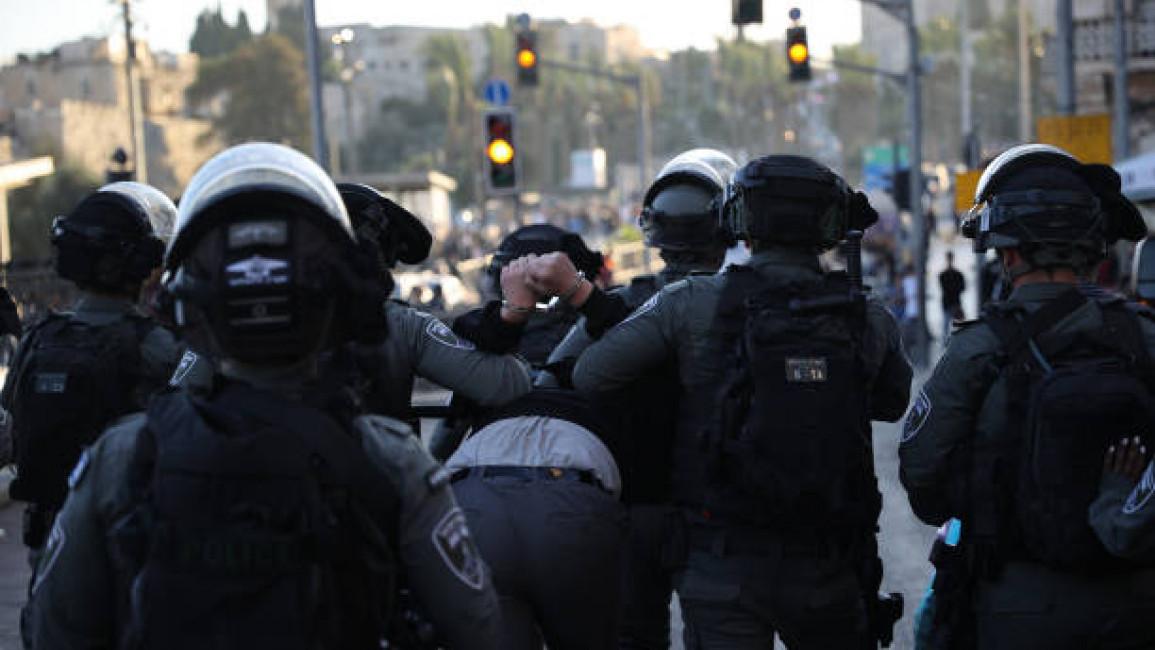Ahead of Ramadan, Israel prepares control measures in Jerusalem amidst rising tensions
The status quo in the Al-Aqsa compound should be "upheld", said the US ambassador to the UN, Linda Thomas-Greenfield on Tuesday during a briefing at the United Nations Security Council in New York.
Greenfield said that the US is "deeply concerned about present-day tensions, including violence, in the West Bank and in and around Jerusalem", and welcomed the recent meetings between Jordan's King Abdullah and the Israeli chief of staff Aviv Kokhavi.
Last Thursday, Israeli foreign minister Yair Lapid met with King Abdullah in Amman and discussed coordination to defuse tensions in the city ahead of the Muslim holy month.
Meanwhile, according to Israeli media outlets, Israeli settler groups have issued calls to storm the Al-Aqsa compound.
On Monday, the Israel public broadcaster 'Kan 11' reported that King Abdullah will visit Ramallah next week and meet with Palestinian President Abbas to alleviate tensions.
Israeli outlets also reported that Jordan's ambassador to Israel has requested from the Israeli government not to allow Israeli settlers into the al-Aqsa compound during the second half of Ramadan when Palestinian Muslims gather in preparation for the Eid al-Fitr holiday.
On Friday, Israeli media reported that new control measures in Jerusalem are being undertaken by Israeli authorities, ahead of the Muslim holy month of Ramadan, out of fears of a major escalation between Israeli police and settlers on one hand, and Palestinians in the city on the other.
The month of Ramadan will coincide this year with the Jewish Passover, in addition to the 74th anniversary of the Palestinian Nakba.
The time period will also mark a year since the wave of Palestinian protests launched during the month of Ramadan last year, dubbed "The May Uprising", triggered by Israeli authorities' violent dispersal of worshipers at Al-Aqsa mosque and attempts to displace Palestinian families in the Sheikh Jarrah neighbourhood.
Confrontations between young Palestinians and Israeli settlers in Sheikh Jarrah neighborhood of Jerusalem a while ago. pic.twitter.com/73hx5lYlWF
— AlQastal News (@QastalNewsEn) March 19, 2022
Tensions remain high in the city, following the killing of nine Palestinians in the West Bank, and Jerusalem. One of them, a 19-year-old, was killed by Israeli police after he stabbed and injured two Israeli soldiers in Jerusalem's old city. Another 16-year-old was killed by the Israeli army during clashes in the town of Abu Dis, south of Jerusalem.
On Monday, Israeli forces raided the refugee camp of Qalandia, north of Jerusalem and clashed with local youth, wounding eight Palestinians, according to local media reports.
On Saturday, Israeli police shot a Palestinian young man in Jerusalem's Talpiot suburb after allegedly attempting to stab an Israeli settler. A video circulated on social media showed the 28-year-old Palestinian being shot after the attack had ended, while standing at distance from Israeli police officers. He survived and was arrested.
A Palestinian youth is gunned down this morning by an Israeli cop in Jerusalem. This is what occupation looks like. All cops may be bastards. But these cops are fascist bastards. We need to free Palestinians from Israeli fascism. #FreePalestine #ACAB pic.twitter.com/xLDuGvmZNa
— GhostofDurruti (@RobTheRich0001) March 19, 2022
Earlier in March, Israeli police exceptionally decided not to impose a general closure on the West Bank during the Jewish holiday of Purim, in an attempt to defuse tensions.
Simultaneously, the Palestinian Islamic-Christian Commission for the Safeguard of Jerusalem issued a statement, warning of "an explosion of the situation" in case Israeli settlers continued to storm the Al-Aqsa mosque in the coming weeks.
On Wednesday, more than 100 Israeli settlers broke into the Al-Aqsa compound under the protection of Israeli police, and performed Jewish prayers, according to Palestinian press reports. Early on Sunday, several Israeli settlers stormed the sanctuary as well.
By morning in occupied #Jerusalem, colonial Israeli settlers break into Al-Aqsa Mosque. pic.twitter.com/3hmpK0DYch
— AlQastal News (@QastalNewsEn) March 20, 2022
According to Israeli media, the Israeli police has identified four areas of potential violence: Sheikh Jarrah neighbourhood, the Silwan neighbourhood just outside the old city, the Damascus gate, and in the old city, especially the Al-Aqsa compound and its surroundings.
"These are the places where Israeli police mostly harass Palestinians," Amjad Abu Assab, the spokesperson for the committee of families of Palestinian detainees in Jerusalem, told The New Arab.
"Israeli violence hasn't stopped in these places, nor the rest of the city," he added.
Israeli occupation forces prevented the residents of the occupied West Bank from entering Al-Aqsa Mosque in occupied Jerusalem, after traveling long distances to reach it, today morning. pic.twitter.com/NoFQHGGxeg
— PALESTINE ONLINE 🇵🇸 (@OnlinePalEng) March 19, 2022
"In the past months, we have witnessed a ramp-up of arrests of Palestinians in Jerusalem," he noted. "Israeli police have arrested 240 Palestinians in Jerusalem in January and 171 in February, adding to the 3,500 Palestinians arrested, including 750 minors in 2021," he said.
"The Israeli police conducts daily random searches and harassments of Palestinians in the city for any reason, like if Palestinians gathered in a public space and had tea," said Abu Assab. "This is to be added to the series of demolitions of Palestinian property in Jerusalem in the past months."
For nothing.... The occupation forces stop #Palestinian youths and search them in the occupied city of #Jerusalem. pic.twitter.com/KGBKBOG0oE
— AlQastal News (@QastalNewsEn) March 20, 2022
According to the Israeli human rights group B'Tselem's records, Israeli authorities have demolished 30 Palestinian structures in Jerusalem during January, leaving 78 Palestinians without home including 37 minors, and 17 Palestinian structures in February, leaving 40 Palestinians without a home, including 19 minors.



